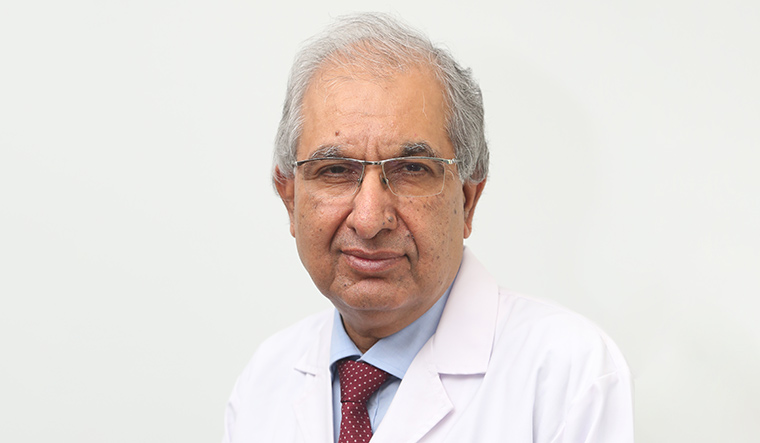Interview/ Dr Gopi Chand Khilnani, chairman, PSRI Institute of Pulmonology, Sleep Medicine and Critical Care, Delhi
When we talk of air pollution, the foremost impact that comes to mind is lung health. Is this because the pathways are better understood?
Air pollution has a multitude of impacts on our health, many of which are not fully understood. It occurs when the air becomes contaminated with harmful substances (for example, carbon monoxide), which originate from various sources, creating a complex mixture that affects us in different ways. Primarily, air pollutants enter our bodies through the lungs, leading to significant impact on lung health. The damage caused to the lungs is well documented, with conditions like Chronic Obstructive Pulmonary Disease (COPD) being particularly noticeable. In fact, air pollution is responsible for half of all COPD cases in India. Additionally, it contributes to the occurrence of lung cancer, with 40 per cent of cases in non-smokers in Delhi attributed to pollution.
Children, in particular, are vulnerable to the effects of air pollution. In Delhi, one-third of children suffer from asthma, indicating a significant impact on respiratory health. Studies have shown a clear correlation between increased air pollution levels and a rise in emergency hospital admissions for asthma, COPD and heart attacks, with rates increasing by as much as 25 per cent.
Lung health itself is not an isolated problem. Does it lead to other health concerns, too?
In healthy people, we have seen that it causes sore throat, cough, feverish feeling, breathlessness and wheezing. In people who have underlying lung disease like asthma or COPD, it necessitates severe nebulisation, admission to emergency and ICU care. But the lung is not the only organ which is affected because ultra-fine particulate matter enter the bloodstream through the lung and go to all the organs of the body—heart, brain, urinary system—and thus affect them all. Other health concerns are hypertension heart disease, strokes, dementia and a variety of cancers. There has been good research in this field, both in India and abroad. And, it has been shown that the life expectancy of human beings is reduced depending on the extent of pollution.
What are the key areas of research that must be undertaken with regards to air pollution and its impact beyond lung health?
A study by Dr Jim Berlin provides clear evidence that air pollution is adversely affecting the health and lung development of children in Delhi. The findings revealed that children in Delhi had lower lung function compared to their counterparts elsewhere. It emphasises the urgent need for policymakers to take decisive action and implement effective policies to control air pollution. Responsibility for addressing this issue lies not only with the administration and policymakers but also with every citizen, as the sources of air pollution, such as construction, road dust, burning of fossil fuels, and waste materials, are widespread and controllable. With approximately 9,000 industrial units contributing to pollution in Delhi NCR alone, urgent measures need to be taken to mitigate these sources of pollution. It is crucial to recognise that tackling air pollution is an emergency that requires immediate action to safeguard the health and well-being of our children.
In a paper, you extrapolate results from a study in the US (see main story). Could you elaborate a little more on the observation?
A study conducted in Chicago and published in October 2023 revealed some worries about the impact of air pollution on life expectancy in India. It showed that the average lifespan of an Indian citizen is reduced by 5.3 years due to air pollution, with the lifespan of people born in Delhi being shortened by 11.9 years. This is alarming news.
However, the study also shed light on a positive aspect: the case of China. China took significant measures to control air pollution starting in 2013, and by 2021, their average lifespan had increased by 2.2 years. This indicates that improving air quality can lead to longer lifespan.
During Covid-19, another interesting observation was made. In northern Italy, where air pollution levels were higher, the death rate due to Covid-19 was three times higher compared to southern Italy, where air pollution was lower.
Similar patterns were observed in Germany, where areas with higher levels of nitric oxide, exceeding 100 parts per million, saw increased mortality rates compared to regions with lower nitric oxide levels.
These findings highlight the direct link between air pollution and mortality rates, emphasising the importance of addressing air quality concerns, especially for the health and well-being of children.


